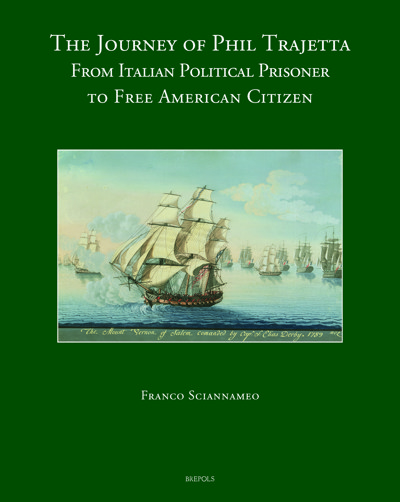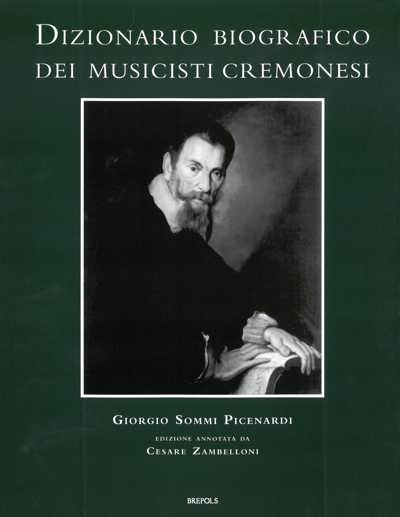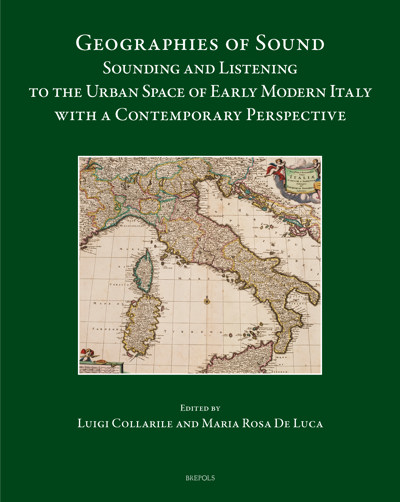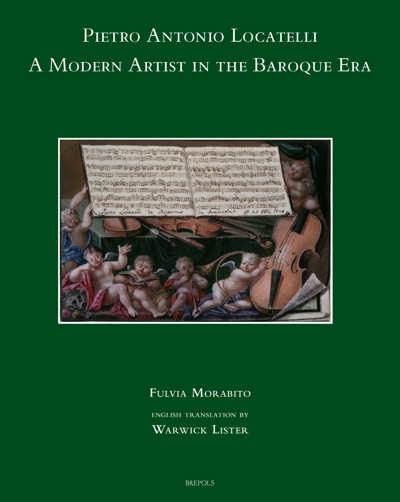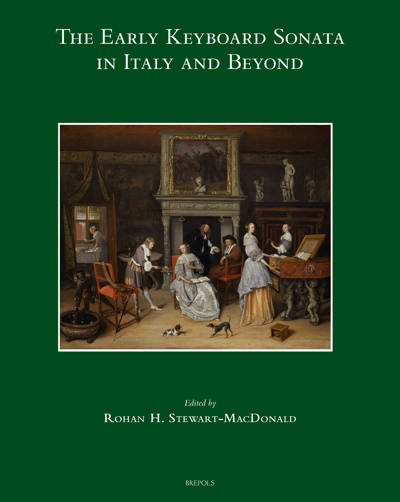
The Journey of Phil Trajetta
From Italian Political Prisoner to Free American Citizen
Franco Sciannameo
- Pages: xiv + 287 p.
- Size:210 x 260 mm
- Illustrations:61 b/w, 2 tables b/w., 17 music examples
- Language(s):English
- Publication Year:2024
- € 115,00 EXCL. VAT RETAIL PRICE
- ISBN: 978-2-503-61565-3
- Hardback
- Available
This volume synthesizes and contextualises the details surrounding the life and work of Filippo (Phil) Trajetta (Venice, 1776 – Philadelphia, 1854), son of celebrated opera composer Tommaso Trajetta (often spelled Traetta).
"A duecento anni dalla prima stagione di opera italiana negli Stati Uniti (inaugurata con la rappresentazione de Il barbiere di Siviglia a New York il 29 novembre 1825) questo libro offre l'opportunità di ripensare il fenomeno migratorio italiano, rafforzando allo stesso tempo il quadro delle ricerche sugli scambi musicali italoamericani e transatlantici nella prima metà dell'Ottocento." (Davide Ceriani, in Ad Parnassum, 23/45, 2025, p. 110)
Born in Maglie (Italy), violinist, musicologist, and cultural historian Franco Sciannameo writes and lectures extensively on contemporary music and its relation to politics, cinema, and the arts. He has worked with several celebrated composers, including Giacinto Scelsi, Vieri Tosatti, Nino Rota, Franco Donatoni, Ennio Morricone, Franco Evangelisti, and Paul Chihara. Sciannameo is College of Fine Arts Distinguished Scholar & Teaching Professor of Music in the School of Music at Carnegie Mellon University in Pittsburgh, Pennsylvania.
This new monograph synthesizes and contextualises the details surrounding the life and work of Filippo (Phil) Trajetta (Venice, 1776 – Philadelphia, 1854), son of celebrated opera composer Tommaso Trajetta (often spelled Traetta). The volume has been designed to call the attention of musicologists and practitioners alike, to a neglected master who valiantly contributed to the development of music in America at a crucial junction in the Country’s history: the period between American post-Revolution years and the threshold of the Civil War. The amount of literature written about music in ante-bellum America is extensive and accurate; however, Trajetta’s name and activities barely receive a cursory mention. Phil Trajetta, patriot, musician, and immigrant deserves better. His literal and existential journey from political prisoner in Naples during the fall of the short-lived Neapolitan Republic to a free American citizen, speaks volumes about his status as one among the very few fully accredited professional European musicians to establish themselves on this side of the Atlantic. In America, Trajetta created, or was instrumental in creating, three important music schools: The American Conservatorios of Boston (1801), New York (1820), and Philadelphia (1828). The American Conservatorio of Philadelphia, which kept its doors opened for over 20 years, became Phil Trajetta’s ultimate ‘raison d’être’. There, as the leader of the Conservatorio’s orchestra and chorus which included students, friends, and professionals, Trajetta produced his major orchestral/choral compositions, and wrote fundamental pedagogical treatises.
Francesco Zimei, Preface
Introduction
Part One
Chapter One: A Musician and Patriot Between Two Worlds
Chapter Two: Salem – Boston – Charleston
Chapter Three: New York City
Chapter Four: In the Mountains of Virginia
Chapter Five: Philadelphia, the ‘Athens’ of America
Chapter Six: Sean Curtice, ‘Solfeggio Americano’ – Trajetta’s Neapolitan Music Pedagogy
Concluding Thoughts: The Italians of Philadelphia
Catalogue of Philip Trajetta’s Extant Works
Part Two
ERO, Azione Tragica. Poesia e musica di Fil. Tajetta
Preface
Editorial Criteria
List of Variants
Critical Edition
Bibliography
Appendix
Trajetta’s Primer of Music Designed for the Use of Teachers and Pupils (1843), reissued with an Appendix by James Cox Beckel (1882)
Index of Names
